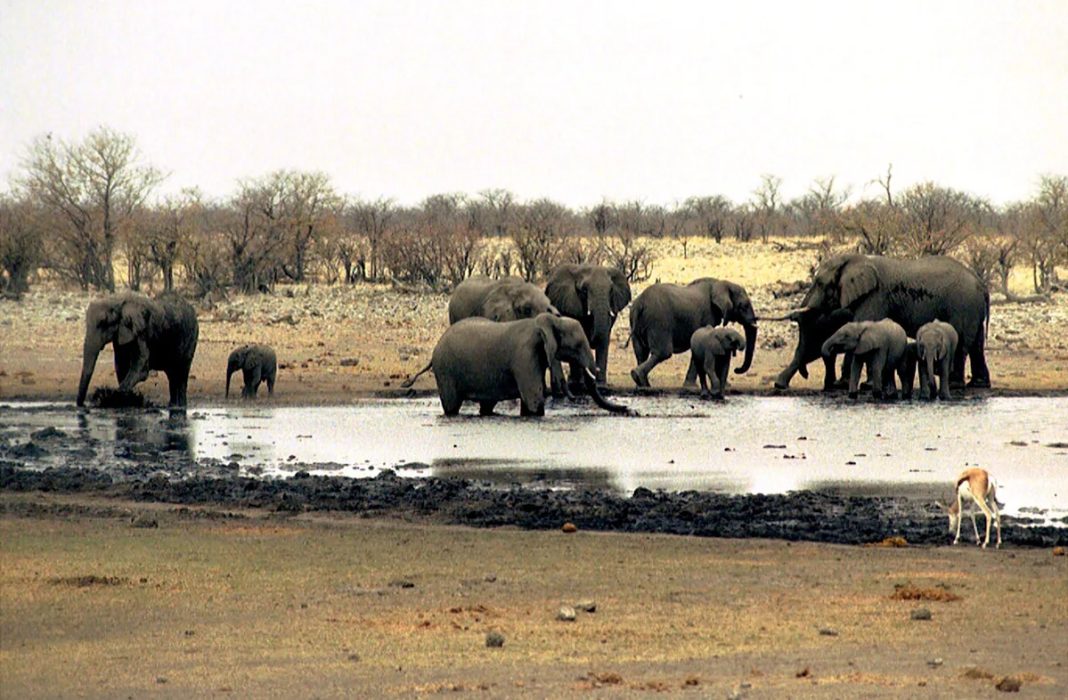Namibia has deployed more than 500 soldiers to help fight a fire that has burned through a third of the vast Etosha National Park, one of Africa’s largest wildlife reserves, Prime Minister Tjitunga Ngurare Manongo said in a social media post.
Manongo said, starting Sunday, the troops would help firefighters, police, and volunteers who are already fighting the “raging fire”.
The park in the north of the largely desert nation is home to 114 species of mammals, including the critically endangered black rhinoceros, and is a major tourist attraction.
The fire started on September 22 and spread rapidly because of strong winds and dry vegetation, causing extensive ecological damage, Namibia’s Ministry of Environment, Forestry and Tourism and the presidency said.
The ministry has announced it has closed certain tourist routes and warned visitors to be cautious as the wind direction could change unpredictably.
After an emergency cabinet meeting on Saturday, the government also deployed two helicopters to the area on Sunday to help firefighting efforts, the presidency said in a statement.
The reinforcements joined 40 soldiers who had arrived on Saturday to assist police, locals and people from nearby farms and private enterprises who had already been fighting the flames, it said.
The extra troops “are deployed from various regions and will be deployed to all affected areas”, Defence Minister Frans Kapofi told the AFP news agency.
“An unknown number of wildlife had been killed, whilst, thankfully, no human casualties have been reported,” the presidency said, adding that the blaze had spread into some communal areas.
“The fire poses a significant threat to the biodiversity, wildlife and livelihood of the communities in the affected areas. Approximately 30 percent of the grazing in the park has been destroyed by the fire,” it said, adding it was still trying to establish what ignited the blaze.
The Environment Ministry said on Saturday at least nine antelopes had been killed in the blaze, which was believed to have started from charcoal production activities on commercial farms bordering the park.
“The ecological damage inside ENP is extensive, with an estimated 775,163 hectares [1.9 million acres], approximately 34 percent of the park, burned,” it said.
The presidency said information provided by teams on the ground indicated that the fire was under control on Sunday in some regions but continuing in the Omusati region near the border with Angola.
The park stretches 22,270sq km (8,600sq miles), and its main feature is the ancient Etosha salt pan, which is about 130km (81 miles) long and 50km (31 miles) wide and draws huge flocks of migratory flamingoes during the rainy season.
Namibia’s President Netumbo Nandi-Ndaitwah told the United Nations General Assembly last week that “climate change is scorching our lands and drying up our rivers”.
She also called on governments to support the Namib Declaration on a stronger UN Convention to combat desertification.
Namibia was among dozens of countries to argue at the International Court of Justice (ICJ) last year that climate change and human rights are closely linked, with the desert nation’s submission focusing particularly on the right to access to water.
The world’s top court found in July that countries must meet their climate obligations and that failing to do so could violate international law, potentially opening the door for affected nations to seek reparations in future legal cases.
In a recent report, the World Meteorological Organization (WMO) found that wildfires are increasingly contributing to poor air quality, with climate change driving increasingly frequent fires and smoke travelling long distances to other countries and even other continents.
Recent research from the World Weather Attribution (WWA) also found that fires that have ravaged hundreds of thousands of hectares of land in Portugal and Spain were made worse by climate change.

